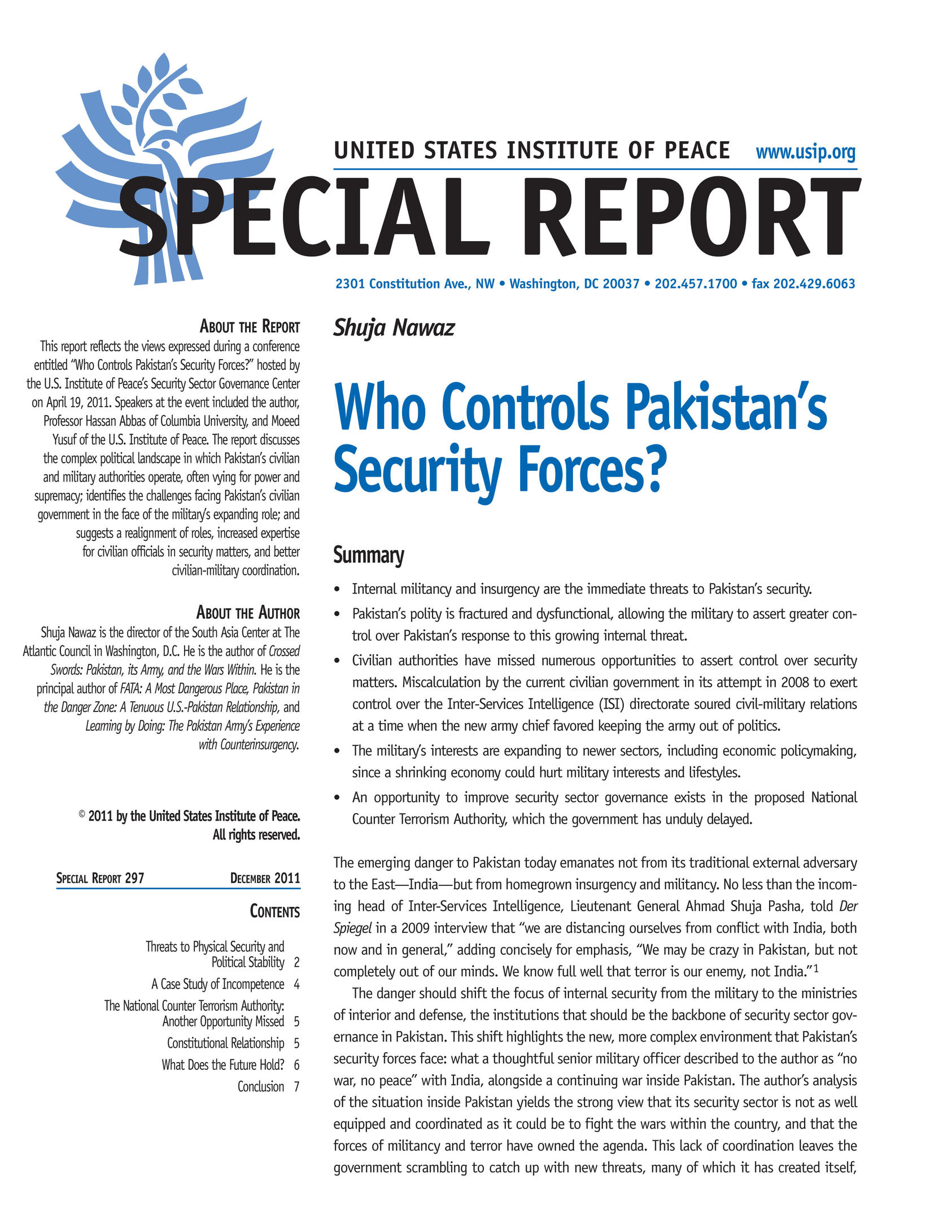Who Controls Pakistan’s Security Forces?
Pakistan’s civilian government must gain more security expertise, and strengthen oversight and coordination among its agencies to counter the military’s role in internal counterinsurgency policy.

Summary
- Internal militancy and insurgency are the immediate threats to Pakistan’s security.
- Pakistan’s polity is fractured and dysfunctional, allowing the military to assert greater control over Pakistan’s response to this growing internal threat.
- Civilian authorities have missed numerous opportunities to assert control over security matters. Miscalculation by the current civilian government in its attempt in 2008 to exert control over the Inter-Services Intelligence (ISI) directorate soured civil-military relations at a time when the new army chief favored keeping the army out of politics.
- The military’s interests are expanding to newer sectors, including economic policymaking, since a shrinking economy could hurt military interests and lifestyles.
- An opportunity to improve security sector governance exists in the proposed National Counter Terrorism Authority, which the government has unduly delayed.



